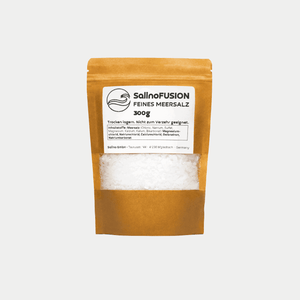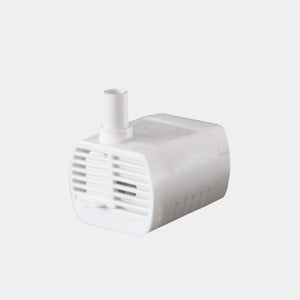Why your everyday life trumps your training
It's not always the tough training schedules that make us better. Sometimes it's the quiet moments between workouts. What you do when you're not sweating. The way you wake up. How you think. How you breathe.
In the world of sports, everyone talks about training cycles, muscle building, and macronutrients. But while we meticulously write our plans, we often overlook what really pushes our performance limits: our daily routine. Not as an accessory—but as the foundation. Sleep patterns, mental stimuli, ambient air, even social interactions—they all act like an invisible team, silently training with us. Or sabotaging us.
What if your fatigue isn't coming from training, but from your lifestyle? What if you're wasting potential because you don't know the little levers? In this article, we'll look where few people look. Where everyday life meets performance – and where the things that make you faster, stronger, and more stable often lie hidden.
What awaits you
You won't find any familiar fitness tips here. No "eat more protein" or "go for a run." Instead, we'll explore the key points: Which everyday factors make the difference? How do they affect recovery, focus, and physical performance? And how can you use them to noticeably support your training – without any additional time investment?
Ready for 7 invisible levers that will make your everyday life more productive? Then read on.
1. The underestimated power of your morning routine
 Rushing in the morning puts your body into stress mode early on. Cortisol levels spike, as does your heart rate. And yet, later on, we wonder why our workout didn't go well. The way we start the day lays the foundation for every physical exertion that follows.
Rushing in the morning puts your body into stress mode early on. Cortisol levels spike, as does your heart rate. And yet, later on, we wonder why our workout didn't go well. The way we start the day lays the foundation for every physical exertion that follows.
What many people don't know: Performance throughout the day depends heavily on the first hour after waking up. Chronobiologists refer to this as the "circadian anchor point." Those who focus on light, oxygen, and moderate exercise in the morning naturally activate their hormone balance – without coffee or supplements.
A walk in daylight, five minutes of mobilization, a cold shower – it sounds simple. But these habits bring your autonomic nervous system into balance. The result? More focus, better body awareness, and faster reaction times in sports.
Especially for athletes with frequent afternoon workouts, a well-coordinated morning routine has a significant impact on coordination and explosiveness. Studies show that exposure to daylight in the morning alone improves sleep quality—which in turn promotes nighttime regeneration and muscle growth.
Tip: Avoid bright cell phone lights and social media during the first hour. They disrupt your inner calm and increase mental fragmentation—counterproductive to any kind of performance.
2. Your breathing air as an invisible performance factor
 The air you breathe every day has more influence on your athletic performance than you might think. It's not just a carrier of oxygen—it's a source of information for your nervous system. Cold, dry air, for example, irritates the respiratory tract, leads to increased mucus production, and can promote inflammation. People with allergies or asthma, in particular, notice this immediately—but even seemingly healthy people often train against the invisible resistance of poor indoor air quality.
The air you breathe every day has more influence on your athletic performance than you might think. It's not just a carrier of oxygen—it's a source of information for your nervous system. Cold, dry air, for example, irritates the respiratory tract, leads to increased mucus production, and can promote inflammation. People with allergies or asthma, in particular, notice this immediately—but even seemingly healthy people often train against the invisible resistance of poor indoor air quality.
The connection is clear: poor air quality = poor sleep, higher respiratory rate at rest, reduced oxygen uptake during exercise.
A study by the Harvard TH Chan School of Public Health has shown that even slightly elevated levels of particulate matter can significantly reduce VO₂max—the maximum oxygen utilization rate. What does this mean for your everyday life? When you spend time in stuffy rooms, city apartments, or air-conditioned offices, you're training against an invisible enemy.
But there are solutions – and they don't just start with the air filter. Regular ventilation, indoor plants, or salty air sources can measurably improve the microclimate. Salty air not only soothes irritations in the respiratory tract, but also promotes the lungs' natural self-cleansing process – a true regeneration booster.
In short: If you breathe better, you train more efficiently – because your body is less busy with protective reactions.
3. Mental stimulus diet: How information hygiene sharpens your focus
 Imagine your brain is a muscle. Every thought, every decision is a mini sprint – and eventually, even the strongest muscle will fatigue. What has long been recognized in professional sports often goes unnoticed in everyday life: cognitive fatigue as a performance inhibitor.
Imagine your brain is a muscle. Every thought, every decision is a mini sprint – and eventually, even the strongest muscle will fatigue. What has long been recognized in professional sports often goes unnoticed in everyday life: cognitive fatigue as a performance inhibitor.
Between push notifications, emails, stories, and multitasking, many of us lose our mental focus—and wonder about "bad workout days." But the problem lies not in the body, but in the mind. The constant activation of the prefrontal cortex—our decision-making engine—sucks us up before we even move.
An overstimulated mind constantly sends small stress signals. The autonomic nervous system switches to the "sympathetic nervous system," our fight-or-flight mode. The result: The heart rate increases, heart rate variability decreases, and regeneration processes run at a low level.
A new app won't help here – it's a different relationship to digital stimuli. If you consciously schedule phases of low-stimulation daily, you'll not only train composure, but also neural acuity. And that's precisely what often determines technique, reaction time, and endurance in training.
Three effective measures for mental stimulus hygiene:
- Daily "digital detox" window: at least 30 minutes without a screen – preferably before training.
- Conscious breathing or meditation to slow down the flow of thoughts.
- Active monotasking: Only one task at a time – especially in cognitively demanding jobs.
4. Social Support: Why Relationships Strengthen Your Muscles
 Sport is physical – yes. But progress occurs in a social context. And that is often more crucial to performance than the training itself. Numerous studies show that people with stable social relationships have greater resilience, fewer stress hormones in their blood, and better recovery from injuries.
Sport is physical – yes. But progress occurs in a social context. And that is often more crucial to performance than the training itself. Numerous studies show that people with stable social relationships have greater resilience, fewer stress hormones in their blood, and better recovery from injuries.
But in everyday life, this support is often the first thing to suffer. Between work, appointments, and training schedules, we neglect the very people who could support our recovery. Because recovery is not just a biological process, but also an emotional one.
Those who feel seen, understood, and emotionally secure recover better—measurably, hormonally, and functionally. Oxytocin, the "bonding hormone," plays a key role here: It lowers cortisol levels, improves sleep quality, and boosts the immune system. All of these are key factors for training performance.
It's not about celebrating in a group after every training session. It's about the deep feeling of not having to fight alone. Those who feel this train from a different energy. Not from pressure, but from inner stability.
5. Microbalance: The silent power of your gut and immune system
 Amid all the fitness industry's promises of progress—new supplements, functional snacks, performance boosters—we often overlook the oldest system that ensures physical performance: the gut . More specifically, the microbiome.
Amid all the fitness industry's promises of progress—new supplements, functional snacks, performance boosters—we often overlook the oldest system that ensures physical performance: the gut . More specifically, the microbiome.
Your microbiome is a complex ecosystem of bacteria, viruses, and fungi that controls not only your digestion, but also your immune system, your mood, your energy. And yes—even your athletic performance.
An imbalanced microbiome leads to silent inflammation. These aren't spectacular infections—rather, they are subtle disturbances that manifest themselves through diffuse fatigue, reduced training adaptation, and slow recovery. Often, we don't even recognize them as such.
People who train a lot are particularly under pressure here: Intense exercise can affect the microbiome – for example through higher core body temperatures, reduced blood flow in the gastrointestinal tract or altered intestinal peristalsis.
The solution? Not dogmatism – but mindfulness. Pay attention to what you eat, how you eat, and when you eat. Fermented foods, sufficient fiber, plant polyphenols, and targeted rest periods for digestion: All of this not only strengthens your gut, but ultimately also your performance.
And: Breathing air, stress, and sleep also affect the microbiome. Anyone who ignores these everyday factors will never reach their full potential, despite optimal training planning.
6. Sleep architecture: Why quantity without quality is not enough
 Many people know: sleep is important. But few realize that it's not the duration alone that determines performance – it's the structure. If you sleep eight hours but never reach the deep sleep phase , you'll wake up feeling like you've flown across three time zones. Physically there, mentally frayed.
Many people know: sleep is important. But few realize that it's not the duration alone that determines performance – it's the structure. If you sleep eight hours but never reach the deep sleep phase , you'll wake up feeling like you've flown across three time zones. Physically there, mentally frayed.
Athletes, in particular, need more than just "sufficient sleep." They need restful, cyclically clean sleep – with enough deep sleep (for physical regeneration) and REM sleep (for mental recovery and movement learning). But this is precisely where many everyday habits fail: eating too late, artificial light, and screen time until shortly before falling asleep.
Scientific studies show that even one night of interrupted deep sleep reduces muscle strength, increases susceptibility to injury, and slows cognitive responses. This isn't just relevant for elite athletes—everyday athletes often suffer from insidious sleep debt without even realizing it.
What helps? No magic trick – just clarity:
- Last meal 2–3 hours before sleep
- Screen-free time at least 30 minutes before
- Consistent bedtime – even on weekends
A dark, cool, and quiet room acts like a dope to your sleep system. And that's exactly what it is: sleep is your most natural means of recovery—and therefore the most powerful lever for athletic progress.
7. Micromovement: The anti-rigidity strategy for real performance
 You train for 60 minutes a day? Great. But what happens in the remaining 23 hours?
You train for 60 minutes a day? Great. But what happens in the remaining 23 hours?
Here lies a rarely considered performance factor: micro-movement – all the small movements your body needs alongside training to stay active, nourished, and ready to adapt. Studies show that even physically active people who sit the rest of the day have a higher risk of metabolic disorders, limited mobility, and slowed recovery.
The body isn't an on-off system. It loves impulses – small stretches, standing up, climbing stairs, walking barefoot, shoulder circles, conscious yawning. These mini-actions improve lymphatic circulation, relieve pressure on the fascia system, and keep the joints supple. If you ignore them, you're still training, but on a tense foundation.
The fascia network, in particular, reacts to inactivity like a circuit that slowly becomes stuck. And this is precisely what makes many people prone to injury or stiff despite regular exercise.
Conclusion: When everyday life becomes an arena
Performance doesn't begin with a warm-up. It begins with the first light in the morning, with the first breath, with the first thought. It grows through the decisions no one sees – not through maximum effort in the gym, but through the micro-actions of everyday life.
The seven levers you learned today aren't tricks. They're not shortcuts. They're the foundation upon which real progress is built. When you cultivate your morning routine, pay attention to your air quality, protect your focus, nurture relationships, nourish your microbiome, protect your sleep, and incorporate micro-movement into your daily routine, your entire organism will become more efficient. Without you having to invest more time.
It's a shift in perspective: not harder, but smarter. Not always more, but more conscious. Thinking this way not only trains your body—but also your self-efficacy.
Because the best thing about everyday life? It's there every day. And with it, every day is a new opportunity to become stronger.
Additional note
If you feel that dry or polluted indoor air is slowing your recovery – especially at night – a salt-based air system can be an effective support. The so-called Mini Saline is an unobtrusive device that uses salt crystals to improve local air quality – without the need for a filter or ultrasound. For many, this is a quiet but noticeable step toward freer breathing and deeper sleep.
Not as a solution for everything. But as a silent companion on your journey.



